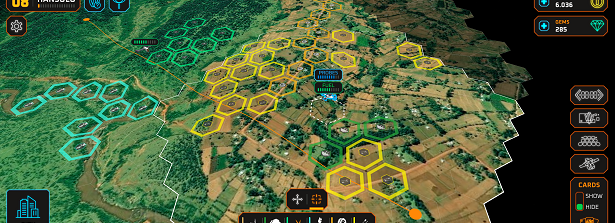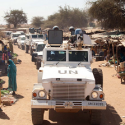Geodata, crowdsourcing and artificial intelligence for post-Covid resilience of food systems and communities

How can technologies like geodata, crowdsourcing intelligence, and machine learning contribute to resilience of food systems and communities during and after shocks like the Covid-19 crisis? This was the central focus of the 8 October CoP meeting that provided feedback to the co-organizers The Hague Centre for Strategic Studies, 52impact, and BlackShore. This consortium recently started a European Space Agency-funded project in this area called ‘Crowds & Machines’ and sought this input of relevant stakeholders in this community to ensure the relevance of their project. The online meeting took Ethiopia as a case to discuss and exchange with 24 participants.
As the Covid-19 pandemic continues disrupting globally, it brings to light and exacerbates structural problems in societies and economies – resulting in reduced food and nutrition security, dropping demand for food, as well as income and job losses. Despite the devastating human toll, Covid-19’s impact on conflict has so far been relatively small. Initially, the lockdowns enforced globally even caused a decrease in political disorder worldwide as large demonstrations stopped taking place – even if events of mob violence and state repression increased. But as the pandemic continues to impact societies worldwide, countering its impacts will become increasingly difficult as social, technical, and financial capital is becoming ever more strained.
Documents to Download |
|
As the crisis progresses, Covid-19’s restrictions in food supply chains are expected to result in rising food prices in some countries. With incomes decreasing at the same time, households are faced with difficult decisions reducing both the quality and quantity of their food consumption. As pre-existing inequality and fragile institutions cause these effects to disproportionately impact those least able to manage, the risk of social unrest and violence rises in contexts when grievances about inequalities and inclusion already exist.
The CoP meeting therefore took one of the pilot countries for the Crowds & Machines project seeking to mitigate this risk – Ethiopia – as a case to see where monitoring efforts are most relevant and how they can contribute to post-Covid resilience of food systems, value chains and communities. Ethiopia faced considerable challenges before the Covid crisis, most notably in the form of the Eastern Locust Crisis, rising food prices as well as its slow democratic transition. The meeting featured presentations by:
- Judith Jacobs (WUR, Centre for Development Innovation) – on monthly rapid assessments of Covid-19 impacts on Ethiopian seeds, fertilizer and sesame sectors.
- Tomaso Ceccarelli (WUR, Earth Observation and Environmental Informatics division) – who leads the Innovation Recommendation Mapping project, using a combination of geodata and crowdsourcing for agro-economic development planning in the BENEFIT programme.
- Laura Birkman, Nino Malekovich (The Hague Centre for Strategic Studies),Koen Verberne (52impact) and Hans van ‘t Woud (BlackShore) – on the Crowds & Machines project that monitors the impacts of Covid-19 on food security and political stability.






